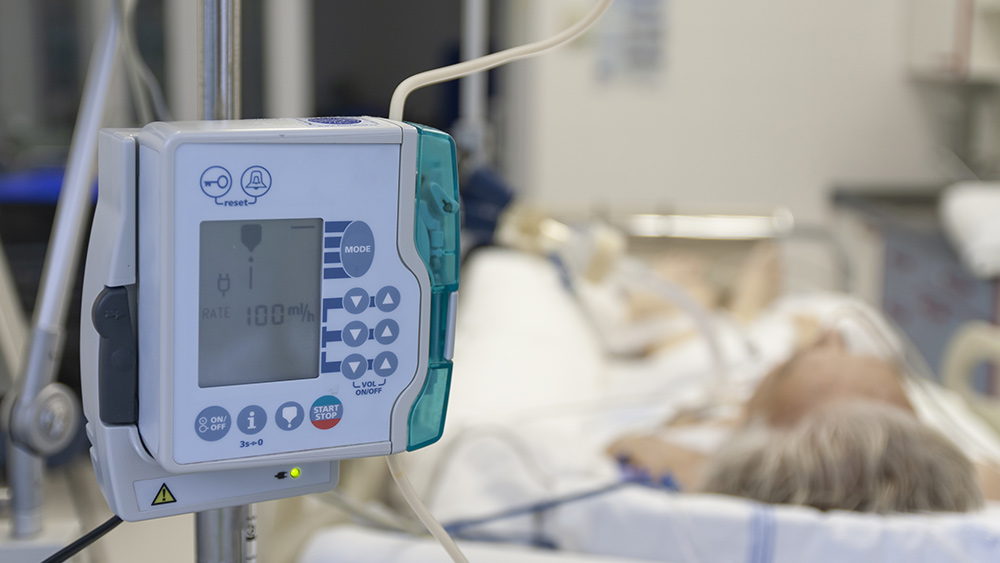Research finds 81% of antibiotics prescribed by dentists are totally unnecessary
03/03/2020 / By Franz Walker

Dentists are among some of the top prescribers of antibiotics in the United States, accounting for around 10 percent of all antibiotic prescriptions. A recent study, however, reports that a staggering 81 percent of the antibiotics prescribed by dentists are unnecessary.
The study, led by Katie Suda, associate professor of pharmacy systems, outcomes and policy at the UIC College of Pharmacy, warns that this practice of prescribing unnecessary antibiotics opens patients up to a number of risks. It also contributes to the problem of antibiotic resistance — a phenomenon wherein bacteria eventually develop resistance to the drugs over time.
Dentists are prescribing more antibiotics than necessary
To get their data, the researchers used Truven Health Analytics, a national health care claims database run by IBM, where they looked at dental visits occurring between 2011 and 2015. They compared antibiotic prescriptions dispensed prior to 168,420 dental visits to the number of high-risk cardiac patients. The latter are the only patients who, according to national guidelines, are recommended for antibiotics prior to any dental procedure.
“Use of preventive antibiotics in these patients opens them up to the risks associated with antibiotic use — increasing bacterial resistance and infections, for example — when the evidence used to develop the guidelines suggests that the risks outweigh the benefits in most patients,” said Suda.
The researchers also looked at how the dentists prescribed antibiotics on a geographic basis. Using the collected data, they discovered that more unnecessary prescriptions took place in the Western U.S. 11,601 of the 13,735 or 85 percent of all prescriptions written in the West, were out of sync with national guidelines. As for other regions, 78 percent of prescriptions in the Northeast, 83 percent of those in the Midwest and 80 percent of those in the South were out of sync. Meanwhile, 82 percent of prescriptions written by dentists in urban centers were deemed unnecessary, while rural areas followed close behind with 79 percent.

More alarming however was the fact that clindamycin was the most common drug prescribed, mostly for joint implants. Clindamycin is associated with a higher risk of developing Clostridium difficile (C. difficile) infections, compared to other antibiotics. C. difficile is a bacteria that can infect the bowels and cause diarrhea. This bacteria usually infects people who have recently undergone antibiotic treatment. C. difficile infections usually require another course of antibiotics in order to be treated fully.
The results of the study have resulted in calls for dentists to change how they prescribe antibiotics.
“Dental providers are very thoughtful when they develop care plans for their patients and there are many factors that inform dentists’ recommendations,” stated Susan Rowan of the UIC College of Dentistry. “But this study shows that there is an opportunity for dentists to reevaluate if necessary. I think dental providers should view this study, which is the first to look at preventive antibiotic prescribing for dental procedures, as a powerful call to action, not a rebuke.”
Dentists have put patients at risk before
These unnecessary antibiotics are just the latest risk that dental providers have been taking with their patients. Prior to this, a report came out on the dangers posed by the silver amalgam used by dentists for cavity fillings.
Despite the name, these fillings actually contained elemental mercury and not silver. Mercury poisoning is known to cause itching, peripheral neuropathy, skin discoloration, peeling, and formication, a disorder that causes the sufferer to feel as if insects are crawling under their skin.
Coming back to antibiotics, a number of natural foods that can be used to treat infections do exist. One of the most promising of these is elderberry. Phytochemicals in elderberries have been shown to protect cells from attack not just from the flu virus, but from the Wuhan coronavirus as well.
Sources include:
.
Submit a correction >>
Tagged Under:
Antibiotics, bad antibiotics, Big Pharma, dentistry, drug companies, harmful medicine, Prescription drugs
This article may contain statements that reflect the opinion of the author





















